How the EnergyFutures project dares to be different
Shifting to the 3i-Mindset:
INVERSION, INTEGRATION, INNOVATION
INVERSION
Starting with the required functionalities, we investigate options on the whole energy value chain up to primary energy
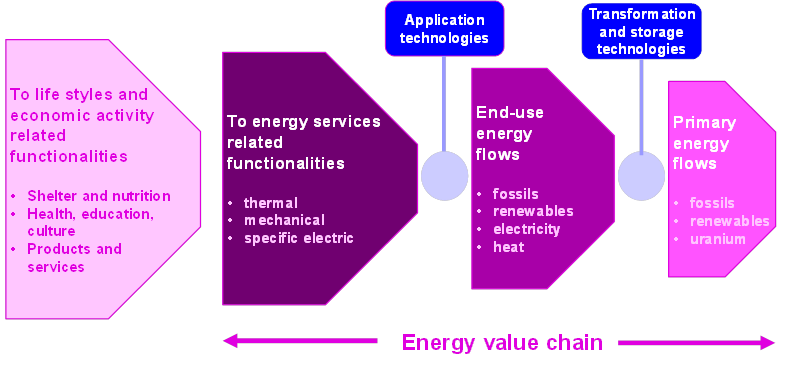
What’s new
- The full cascade of the energy value chain
- The focus on energy related functionalities
- The reversal of the analysis by starting with functionalities
INTEGRATION
Harvesting synergies by linking all components of the energy system serving for application, transformation and storage.
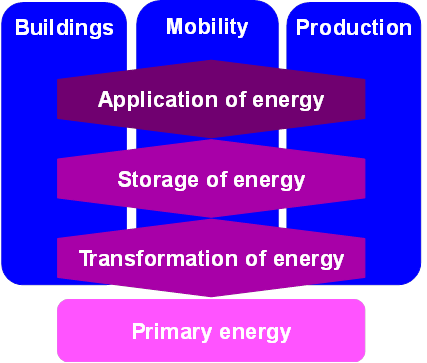
What’s new
- The traditional separation between providers and users of energy is becoming blurred
INNOVATION
All components of the energy system will face disruptive technologies with a high potential for innovative changes.
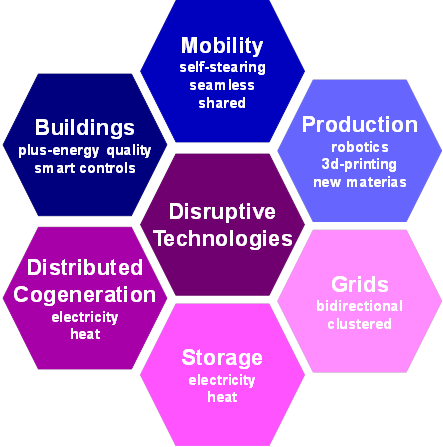
What’s new
- Innovative potentials of all elements are analyzed
- New (decentralized) structures are identified
- This will require new business models
How the EnergyFutures Model helps fathoming future energy systems
Evaluating radical innovations along the energy value chain
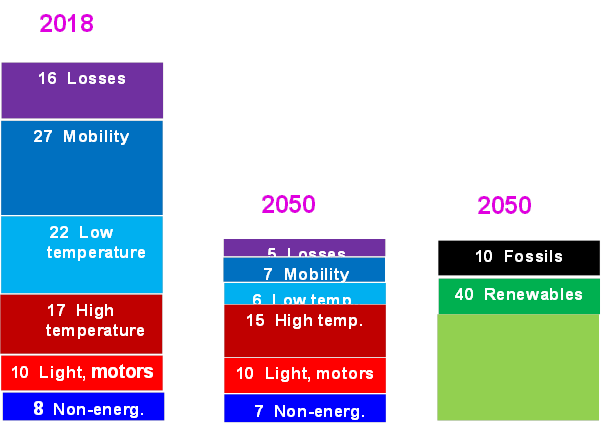
What’s new
- A prerequisite for reducing 80% of fossils is halving the energy flows without compromising functionalities
- This can be achieved by radical innovations along the energy value chain
You may want to develop your own vision about future structures of our energy system with the EnergyFutures web tool https://energyfutures.net
EnergyFutures Project
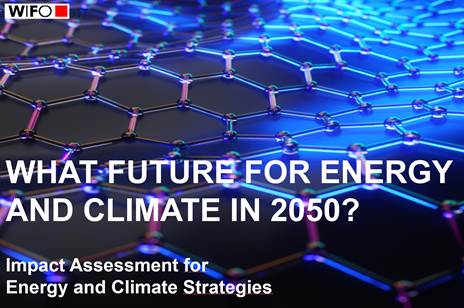
Project documents
Welche Zukunft für Energie und Klima? Folgenabschätzungen für Energie- und Klimastrategien – Die Aussagen.
Stefan Schleicher, Angela Köppl, Stephan Lienin, Martin Treberspurg, Doris Österreicher, Roman Grünner, Reinhold Lang, Manfred Mühlberger, Karl Steininger, Christian Hofer
What Future for Energy and Climate in 2050?
Impact Assessment for Energy and Climate Strategies
Project Partners
Austrian Institute of Economic Research, Vienna
Angela Köppl
Stefan P. Schleicher
Mark Sommer

Sustainserv, Zürich – Boston
Stephan Lienin

University of Natural Resources and Life Sciences, Vienna
Roman Grüner
Doris Österreicher
Martin Treberspurg

Johannes Kepler University, Linz
Reinhold W. Lang

Wegener Center at the University of Graz
Christian Hofer
Stefan Schleicher
Karl Steininger

ETA Environmental Management, Vienna
Manfred Mühlberger


